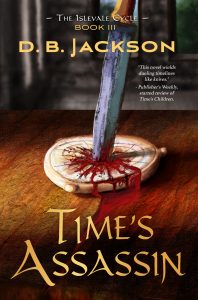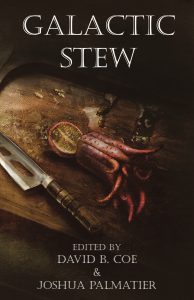After attending DragonCon and speaking on panels about various aspects of writing, I have found myself thinking—yet again—about the age-old debate between those who outline their books and those who don’t. Or, between planners and pantsers, in the parlance of the discussion. And yes, I know those who write without an outline object to the term “pantsing.” (For those unfamiliar with the term, it comes from the phrase “Flying [or in this case ‘writing’] by the seat of one’s pants.”)
I actually understand and sympathize with these objections to the term. As one who sometimes writes with an outline and sometimes without, I can say with confidence that I am no less a writer when in the midst of those projects that defy my efforts to outline ahead of time.
As I have said before, my creative process reinvents itself with each project I take on, often with each book. Some projects lend themselves to outlining and are better suited to a systematic approach to plotting. The Thieftaker books in particular are easy to outline. Indeed, when writing in the Thieftaker universe I feel outlining is absolutely essential. With each book and story, I seek to blend historical events with fictional ones, and keeping the two timelines—the imagined and the real—in sync, demands that I have plan things out with care.



On the other hand, I have written books that I could not outline at all, despite making every attempt to do so. Most notably, the three volumes of my Islevale Cycle (Time’s Children, Time’s Demon, and Time’s Assassin) simply would not submit themselves to any sort of advanced planning. They were like children, refusing to sit still long enough to be photographed.
I have also said before that to me the outlining thing is not so much a binary choice—outline in detail or write the books without any planning at all—as it is a continuum. Even the most dedicated “pantsers” I know have a good idea of where their books are headed. They just don’t like to be tied to a formal outline. In the same way, the most diligent outliners I know leave a great many details out of their outlines, allowing themselves to create in the moment, to preserve the energy that comes from writing organically. Each of us is a little bit planner, a little bit pantser, a little bit country, a little bit rock ‘n roll . . . .
(That is my first, and will be my only, Osmond reference EVER in this blog . . . .)
So why am I revisiting the outlining question this week? Because I am in the process of finishing the third volume in my upcoming Celtic urban fantasy series (which STILL needs a series name!!) and in the final weeks of writing the book, I have been outlining—perhaps it’s more accurate to say RE-outlining—the last ten chapters or so of the story.
And I’ve realized this is something I do a lot. Yes, I try to outline most books, but I almost never outline all the way to the end of the novel. Why? Because things change along the way. I can set out plot points for the first fifteen or twenty chapters of a book before I begin writing Chapter 1, but I know my story is going to shift along the way. Characters will do things that surprise me, that upset my best-laid plans. It’s inevitable. And, in fact, I welcome those kinds of narrative disruptions. When my characters start surprising me, it means they have become fully realized personalities in my head, which is always a good thing.
So, I might outline twenty chapters initially, but I almost always need to adjust my outlines starting at around chapter ten. And then I need to do it again at around chapter seventeen or eighteen. And then I need to do it yet again for the final five or ten chapters of the book.
Put another way, outlining is not simply a task I complete early on, before I start to write my book, and I never think of my outline as a static document. Rather outlining is a process, something I have to revisit several times along the way in order to keep up with the constant creative evolution of my narrative vision.
Because, like so many writers, I am a hybrid. I plan my stories and I also write organically. I adhere to an overarching concept and I adapt to an ever-changing plot line. I take comfort in having a roadmap for my novel and I draw energy from all the story ideas I discover along the way. As I say, my process changes with each project, but these things remain the same.
I like to say there is no single right way to do any of this. Don’t let anyone tell you that you have to plot or you have to write organically. Find the balance that fits best with your creative style.
And, of course, keep writing.









 This will be the fifth anthology I have edited for ZNB (after
This will be the fifth anthology I have edited for ZNB (after  After running away from social media for six weeks, and ignoring publicity opportunities and the like, I feel a little funny offering any professional advice to anyone on anything. Which, I realize, is entirely wrong-headed.
After running away from social media for six weeks, and ignoring publicity opportunities and the like, I feel a little funny offering any professional advice to anyone on anything. Which, I realize, is entirely wrong-headed. In the end, I hit my deadline. More, the book I wrote that spring, Invasives, the second Radiants novel, turned out better than I ever could have imagined. I love the book, not only because I think it’s good, but because it saved me. It got me through that terrible spring and early summer.
In the end, I hit my deadline. More, the book I wrote that spring, Invasives, the second Radiants novel, turned out better than I ever could have imagined. I love the book, not only because I think it’s good, but because it saved me. It got me through that terrible spring and early summer.